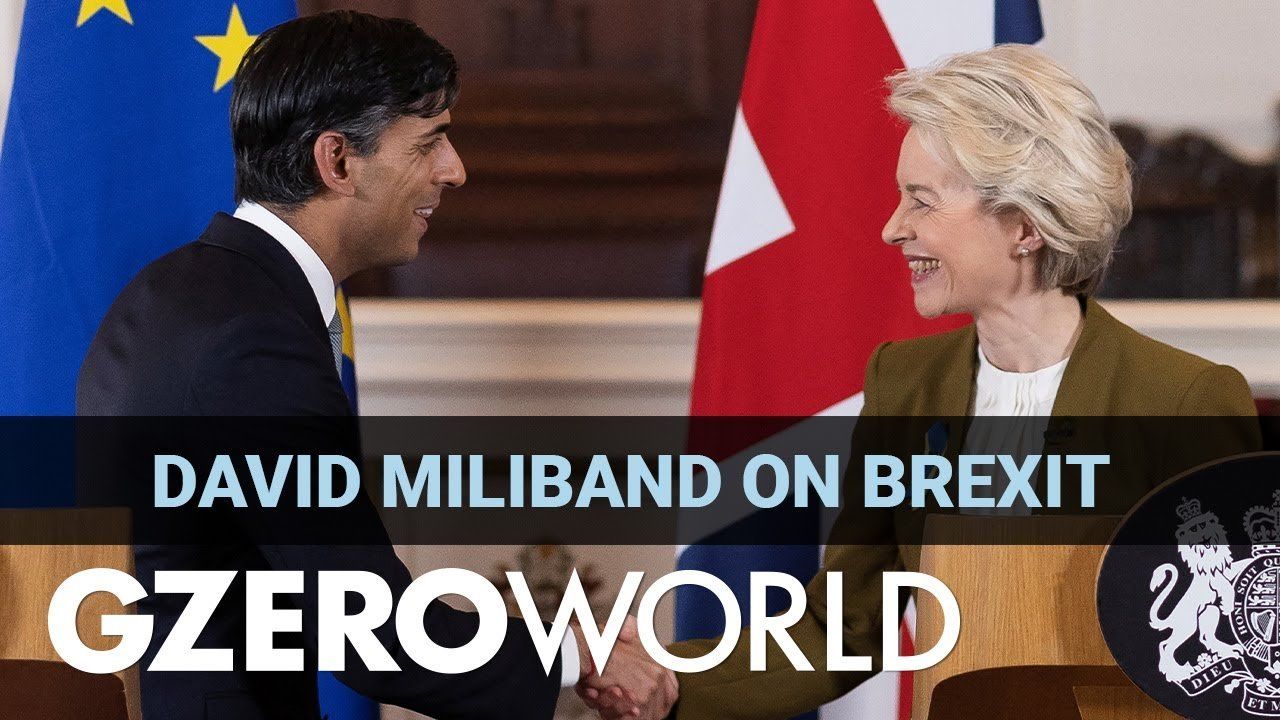GZERO World Clips
Northern Ireland deal: an improvement, but "Brexit is never over" for UK, says David Miliband

Northern Ireland deal: an improvement, but "Brexit isn't over" for UK | GZERO World

How will the impact of Brexit continue to shape the future of the UK and its relationship with the EU? On GZERO World, President and CEO of the International Rescue Committee David Miliband expresses his views on Brexit and the Northern Ireland deal agreed upon by UK Prime Minister Rishi Sunak and European Commission President Ursula von der Leyen. Miliband, who served as the UK's Foreign Secretary from 2007 to 2010, supports the new deal and views it as “more honest than previous ones,” but notes that Brexit is "a journey, not a destination. And it’s forever in its impact.”
He specifically points out the challenges faced by Northern Ireland and how Brexit has disrupted the Good Friday agreement, making it difficult for those living in North Ireland “to choose whether to be British or Irish, or both, as the agreement allowed.”
Miliband believes that while progress has been made, “there are still many aspects of national life where Brexit isn’t working,” and these need to be addressed.
With close ties to both the US and China, can Singapore survive in an increasingly fragmented and chaotic world? Singapore’s President Tharman Shanmugaratnam joins Ian Bremmer on the GZERO World Podcast.
Think you know what's going on around the world? Here's your chance to prove it.
This week, Prime Minister Keir Starmer became the first UK leader to visit China in eight years. His goal was clear: build closer trade ties with Beijing.